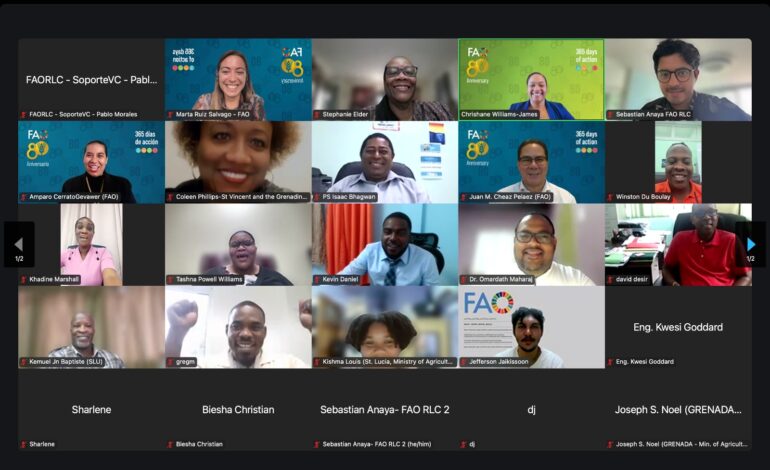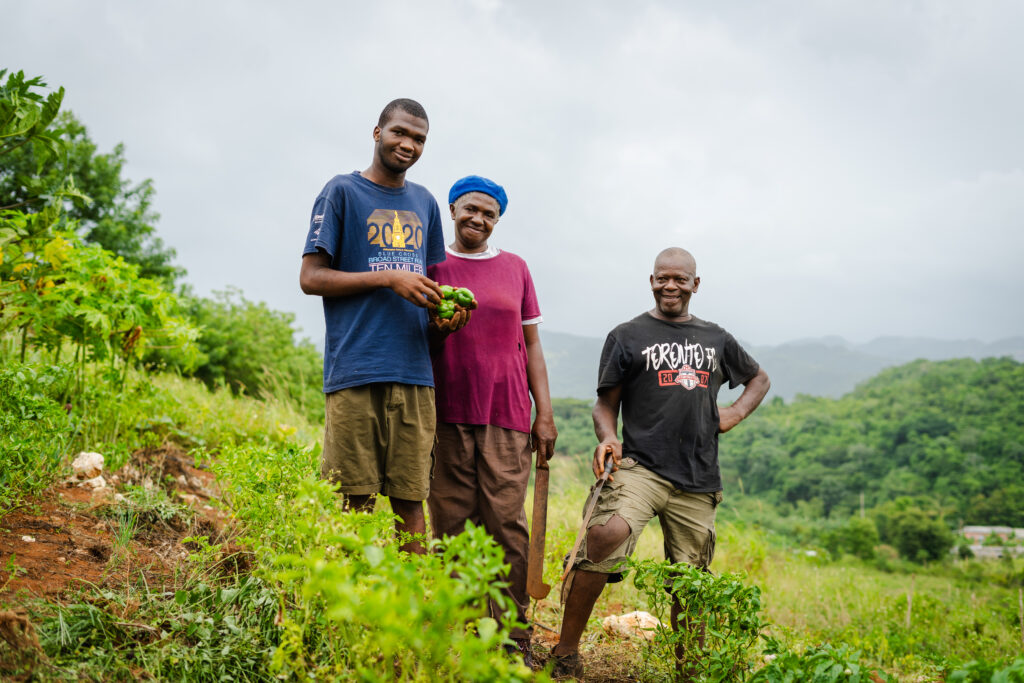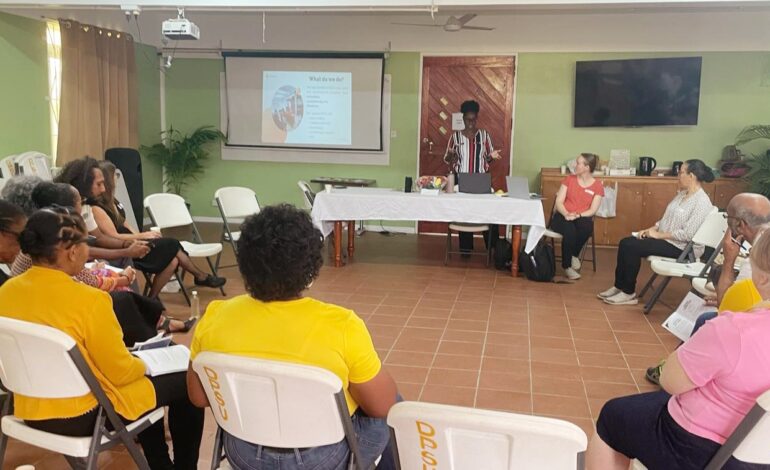
In a promising step towards strengthening the Caribbean’s agriculture sector, FAO engaged some 30 government representatives from four Caribbean countries to share their experiences on agricultural land access policies and chart a path towards improving the implementation of agricultural land bank initiatives.
11 April 2025 – Bridgetown, Barbados – Land Banks, as a tool in improving access to lands for agricultural development, have existed for decades in many parts of the world. In the Caribbean, they are slowly gaining traction as a means of redistributing underutilized and idle lands to farmers, allowing them to have more secure access to land to improve their agricultural productivity.
From 8-9 April 2025, government representatives from Grenada, St Kitts and Nevis, St Lucia and St Vincent and the Grenadines shared their knowledge and experiences on land bank projects in their respective countries. Facilitated by the Food and Agriculture Organization of the United Nations (FAO), through its Regional Office for Latin America and its Subregional Office for the Caribbean, the sessions sought to examine aspects of effective agricultural land management and areas of improving gender balance in access to land, to learn from countries that have developed national agricultural land banks and to share some best practices and recommendations to strengthen the implementation of agricultural land banks in the region.
Grenada’s Permanent Secretary in the Ministry of Agriculture and Lands, Forestry, Marine Resources and Cooperatives, Mr Isaac Bhagwan, shared during the opening ceremony some of the initiatives in the country towards improving access to fertile lands to improve food security and help to reduce the country’s food import bill as part of the regional agenda to reduce food imports by 25 percent by 2025, now extended to 2030.
Permanent Secretary Mr Miguel Flemming, from the St Kitts and Nevis Ministry of Agriculture, Fisheries and Marine Resources, also shared in his opening remarks on his country’s efforts to “unlock dormant land resources” in an equitable and sustainable manner that allows farmers to produce better and help in driving agricultural development. In these remarks, both countries recognized the value of land banks and the proper utilization of land for promoting food security and highlighted the importance of the workshop in learning from each other of the best ways to achieve this.
Speaking on behalf of FAO, Ms Amparo Cerrato Gevawer, Land Tenure Officer, highlighted the role of land banks in promoting the inclusion of marginalized groups in the agriculture sector, especially young people and women. She emphasized that ensuring inclusive land access can help in advancing the achievement of national, regional and global agendas, like the Sustainable Development Goals (SDGs), and in promoting a sustainable and resilient regional food future.
Over the two days, FAO delivered presentations on the functions of land banks and lessons learned in supporting countries in their implementation over the past 8 years. Representatives from the Ministries of Agriculture in Grenada, St Lucia, St Kitts and Nevis and St Vincent and the Grenadines also presented challenges, lessons learnt and recommendations for improving land bank implementation. These presentations led to group discussions on the way forward for improving land access. Across the countries there were commonalities shared in the lack of availability and accessibility of arable land, fragmented ownership of land by the state or private owners, and inadequate infrastructure, such as accessible roads to potential farmlands. The need for several resources were also highlighted, including legislation or legislative action to address issues of land tenure and access, as well as advocacy and public awareness on land banks, human resources to support the management of land banks, greater accountability and more efficient implementation of land bank programmes and continued political will and commitment.
By the end of the workshop, the countries agreed on several recommendations and conditions that would lead to the success of land banks. These include the need for land bank initiatives to be country driven, ensuring government buy-in and commitment from policy makers, approaching land banks as a flexible mechanism- adaptable to the priorities and needs of countries in promoting agricultural development, and ensuring that land administration of public lands was well managed to encourage buy-in by private landowners.
Ms Cerrato, in closing the 2-day workshop, reiterated the resilience of land banks and FAO’s support in developing proposals and partnering with other projects and initiatives to support land bank implementation in the region. She emphasized that strengthening land banks required support from other areas, such as training in good agricultural practices, capacity building of technical officers, value chain development, business model development and increasing access to markets. She noted that land banks are not a ‘silver bullet’ to solving food insecurity and problems faced by farmers but are a useful policy tool in helping to build resilience to shocks, threats and risks faced by farmers.
Over the coming months, FAO will continue its support to land bank initiatives across the four countries, with activities geared towards introducing, upgrading and training Ministry personnel on National Land Banks Information Systems, which provide information on land availability and support land application processes. Additionally, action plans will be developed with each country, based on the workshop discussions, to establish workplans for improved land bank implementation.







